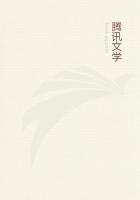
第97章
“I am sure Lucia once wore chains and broke them,” was the strange answer.“I do not mean matrimonial chains,” she added, correcting herself, as if she feared misinterpretation, “but social chains of some sort.The face is that of one who has made an effort, and a successful and triumphant effort, to wrest some vigorous and valued faculty from insupportable constraint; and when Lucia’s faculty got free, I am certain it spread wide pinions and carried her higher than—” she hesitated.
“Than what?” demanded Hunsden.
“Than ‘les convenances’ permitted you to follow.” “I think you grow spiteful—impertinent.”
“Lucia has trodden the stage,” continued Frances.“You never seriously thought of marrying her; you admired her originality, her fearlessness, her energy of body and mind; you delighted in her talent, whatever that was, whether song, dance, or dramatic representation; you worshipped her beauty, which was of the sort after your own heart: but I am sure she filled a sphere from whence you would never have thought of taking a wife.”
“Ingenious,” remarked Hunsden; “whether true or not is another question.Meantime, don’t you feel your little lamp of a spirit wax very pale, beside such a girandole as Lucia’s?”
“Yes.”
“Candid, at least; and the Professor will soon be dissatisfied with the dim light you give?”
“Will you, monsieur?”
“My sight was always too weak to endure a blaze, Frances,” and we had now reached the wicket.
I said, a few pages back, that this is a sweet summer evening; it is—there has been a series of lovely days, and this is the loveliest; the hay is just carried from my fields, its perfume still lingers in the air.Frances proposed to me, an hour or two since, to take tea out on the lawn; I see the round table, loaded with china, placed under a certain beech; Hunsden is expected—nay, I hear he is come—there is his voice, laying down the law on some point with authority; that of Frances replies; she opposes him of course.They are disputing about Victor, of whom Hunsden affirms that his mother is making a milksop.Mrs.Crimsworth retaliates:—“Better a thousand times he should be a milksop than what he, Hunsden, calls ‘a fine lad;’ and moreover she says that if Hunsden were to become a fixture in the neighbourhood, and were not a mere comet, coming and going, no one knows how, when, where, or why, she should be quite uneasy till she had got Victor away to a school at least a hundred miles off; for that with his mutinous maxims and unpractical dogmas, he would ruin a score of children.”
I have a word to say of Victor ere I shut this manuscript in mydesk—but it must be a brief one, for I hear the tinkle of silver on porcelain.
Victor is as little of a pretty child as I am of a handsome man, orhis mother of a fine woman; he is pale and spare, with large eyes, as dark as those of Frances, and as deeply set as mine.His shape is symmetrical enough, but slight; his health is good.I never saw a child smile less than he does, nor one who knits such a formidable brow when sitting over a book that interests him, or while listening to tales of adventure, peril, or wonder, narrated by his mother, Hunsden, or myself.But though still, he is not unhappy—though serious, not morose; he has a susceptibility to pleasurable sensations almost too keen, for it amounts to enthusiasm.He learned to read in the old-fashioned way out of a spelling-book at his mother’s knee, and as he got on without driving by that method, she thought it unnecessary to buy him ivory letters, or to try any of the other inducements to learning now deemed indispensable.When he could read, he became a glutton of books, and is so still.His toys have been few, and he has never wanted more.For those he possesses, he seems to have contracted a partiality amounting to affection; this feeling, directed towards one or two living animals of the house, strengthens almost to a passion.
Mr.Hunsden gave him a mastiff cub, which he called Yorke, after the donor; it grew to a superb dog, whose fierceness, however, was much modified by the companionship and caresses of its young master.He would go nowhere, do nothing without Yorke; Yorke lay at his feet while he learned his lessons, played with him in the garden, walked with him in the lane and wood, sat near his chair at meals, was fed always by his own hand, was the first thing he sought in the morning, the last he left at night.Yorke accompanied Mr.Hunsden one day to X—, and was bitten in the street by a dog in a rabid state.As soon as Hunsden had brought him home, and had informed me of the circumstance, I went into the yard and shot him where he lay licking his wound: he was dead in an instant; he had not seen me level the gun; I stood behind him.I had scarcely been ten minutes in the house, when my ear was struck with sounds of anguish: I repaired to the yard once more, for they proceeded thence.Victor was kneeling beside his dead mastiff, bent over it, embracing its bull-like neck, and lost in a passion of the wildest woe: he saw me.
“Oh, papa, I’ll never forgive you! I’ll never forgive you!” was his exclamation.“You shot Yorke—I saw it from the window.I never believed you could be so cruel—I can love you no more!”
I had much ado to explain to him, with a steady voice, the sternnecessity of the deed; he still, with that inconsolable and bitter accent which I cannot render, but which pierced my heart, repeated—“He might have been cured—you should have tried—you should have burnt the wound with a hot iron, or covered it with caustic.You gave no time; and now it is too late—he is dead!”